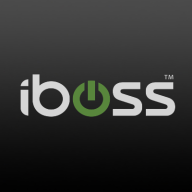


Cisco Umbrella and Axis Security are products competing in the cybersecurity category. Based on comparisons, Cisco Umbrella takes the lead with its comprehensive feature set and competitive pricing, while Axis Security's feature richness and focus on application security appeal to businesses that prioritize robust functionalities.
Features: Cisco Umbrella provides DNS-layer protection, secure web gateway, and cloud-delivered firewall for broad protection. Axis Security offers detailed access controls, zero-trust network access (ZTNA), and application security features tailored to enhance application-level protection.
Room for Improvement: Cisco Umbrella could expand its application-level security capabilities, enhance zero-trust features, and include more granular access controls. Axis Security can work on improving its pricing competitiveness, streamline integration with existing systems, and enhance deployment efficiency.
Ease of Deployment and Customer Service: Cisco Umbrella is known for easy cloud-based deployment and reliable customer support, making it a seamless fit for existing systems. Axis Security offers smooth integration with cloud-native infrastructure, although its integration may require more customization efforts.
Pricing and ROI: Cisco Umbrella offers competitive pricing with a clear return on investment through cost-effective solutions. Axis Security, being feature-rich, is priced at a premium, but its advanced capabilities justify the ROI for organizations focused on comprehensive protection.



iboss offers a comprehensive security platform designed for diverse use cases such as web filtering, data loss protection, corporate proxy services, and URL filtering.
iboss integrates advanced features to address dynamic security needs, leveraging its strength in SASE, ZTNA, AI initiatives, and cloud integration, while ensuring seamless operations for remote work. It excels in historical forensics, malware protection, and flexible cloud deployments. Users benefit from comprehensive traffic scanning, robust malware detection, and PaaS capabilities that reduce hardware management. An intuitive admin console ensures efficient management with content filtering and low false positives. SSL decryption enhances security, while DLP protects data in AI conversations. Deployment is rapid and scalable, allowing effortless integration with emerging technologies.
What features does iboss offer?
What benefits and ROI should users consider?
iboss finds significant application in sectors such as education, where web filtering for K-12 is crucial, and in corporate environments requiring robust proxy services and URL filtering for network security. Its adaptability is essential in scenarios demanding flexible, decentralized security frameworks, particularly for remote work setups.
Axis Security is a prominent enterprise security solution, specializing in Zero Trust Network Access (ZTNA). The Axis Security Application Access Cloud platform is designed to secure remote access to applications and services hosted in the cloud or on-premises. It aims to simplify and enhance access controls while maintaining strong security measures.
Axis Security's platform stands out by offering a comprehensive, cloud-native solution designed to enable secure access to private applications. Their Application Access Cloud simplifies network security, eliminating the need for traditional VPNs, and provides a more secure and efficient way to connect users to private applications, regardless of where the users or the applications are located.
Axis Security users on PeerSpot have highlighted the ease of deployment and the non-intrusive nature of Axis Security's solution as major advantages. One IT Director noted, "The implementation was straightforward and didn’t disrupt our existing operations, which was a major plus." Another user, a Security Manager, praised the platform's robust security features, saying, "Axis Security has significantly enhanced our ability to control and monitor application access, giving us peace of mind in our security operations."
Axis Security follows the principles of zero-trust architecture, which means it treats every access request as potentially untrusted, regardless of the user's location or network. It applies rigorous authentication and authorization controls to ensure only authorized users can access specific applications and resources. Axis Security enables secure remote access to applications and services without requiring a VPN (Virtual Private Network). It establishes a secure connection between users and applications, protecting against potential threats and reducing the attack surface.
With Axis Security, organizations can granularly control user access to specific applications or services. This ensures that users only have access to the resources they need, reducing the risk of unauthorized access or data breaches. The platform simplifies access management by providing a centralized control point for managing user access policies. IT administrators can define access rules based on user roles, groups, or other criteria, making it easier to enforce security policies and maintain compliance.
Axis Security continuously monitors user activity and application access, detecting potential threats and anomalies in real-time. It provides insights into user behavior, allowing organizations to identify and mitigate security risks promptly.
Axis Security is built on a cloud-native architecture, allowing it to scale and adapt to dynamic cloud environments. It can seamlessly integrate with various cloud services and supports hybrid deployments, making it suitable for organizations with diverse infrastructure setups.
Axis Security aims to provide secure and simplified remote access to applications while adhering to the principles of zero trust. By implementing granular access controls and continuous monitoring, it helps organizations protect their critical resources and reduce the risk of unauthorized access or data breaches.
Cisco Umbrella delivers rapid DNS security with over 30,000 customers, providing outstanding threat protection and handling more than 600 billion requests daily. It's recognized for high threat efficacy in the SSE domain and integrates elements like SWG, ZTNA, CASB, and more.
Cisco Umbrella is renowned for its effective DNS-layer security against ransomware and phishing. It offers flexible content filtering and integrates seamlessly with existing networks while providing single-pane-of-glass management for centralized monitoring. Its robust threat intelligence and customizable policies are central to its appeal. Users highlight room for improvement in areas like WHOIS data inclusion, malware enhancement, and reporting analytics. Integration with other threat feeds and better client support are requested for more comprehensive coverage.
What are the key features of Cisco Umbrella?Industries implement Cisco Umbrella primarily for DNS-level security, web filtering, and protecting remote employees. It strengthens cybersecurity frameworks by blocking malware and avoiding access to harmful sites. The tool is widely integrated with Active Directory and Cisco Meraki, providing consistent internet security for employees.
We monitor all Secure Web Gateways (SWG) reviews to prevent fraudulent reviews and keep review quality high. We do not post reviews by company employees or direct competitors. We validate each review for authenticity via cross-reference with LinkedIn, and personal follow-up with the reviewer when necessary.